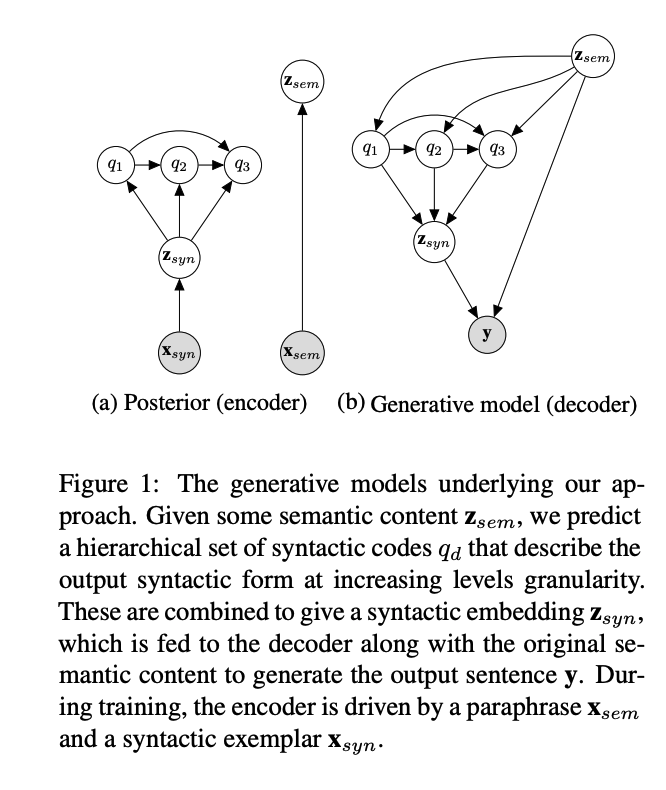This paper proposes to introduce an intermediary grammar sketching step into paraphrase to encourage syntactic diversity. They insert a hierachical set of syntactic codes (tokens) into their encoder and decoder. These codes are learnt end-to-end without resorting to an external parser. The encoder learns to predict syntactic codes autoregressively from an explar which controls how the grammar will look like. It also encodes the semantics using another encoder block. During prediction the paraphrase is conditioned on both the syntactic codes and semantics using a graphical model.

Comments
- I cannot say I fully understand the underlying technique especially how to optimize the graphical model, but the idea sounds fantastic. This is definitely the kind of papers I want to write in the future.
- Will a constituency grammar helps the initialization of the unsupervised syntactic codes?
Rating
- 5: Transformative: This paper is likely to change our field. It should be considered for a best paper award.
- 4.5: Exciting: It changed my thinking on this topic. I would fight for it to be accepted.
- 4: Strong: I learned a lot from it. I would like to see it accepted.
- 3.5: Leaning positive: It can be accepted more or less in its current form. However, the work it describes is not particularly exciting and/or inspiring, so it will not be a big loss if people don’t see it in this conference.
- 3: Ambivalent: It has merits (e.g., it reports state-of-the-art results, the idea is nice), but there are key weaknesses (e.g., I didn’t learn much from it, evaluation is not convincing, it describes incremental work). I believe it can significantly benefit from another round of revision, but I won’t object to accepting it if my co-reviewers are willing to champion it.
- 2.5: Leaning negative: I am leaning towards rejection, but I can be persuaded if my co-reviewers think otherwise.
- 2: Mediocre: I would rather not see it in the conference.
- 1.5: Weak: I am pretty confident that it should be rejected.
- 1: Poor: I would fight to have it rejected.
0 voters
